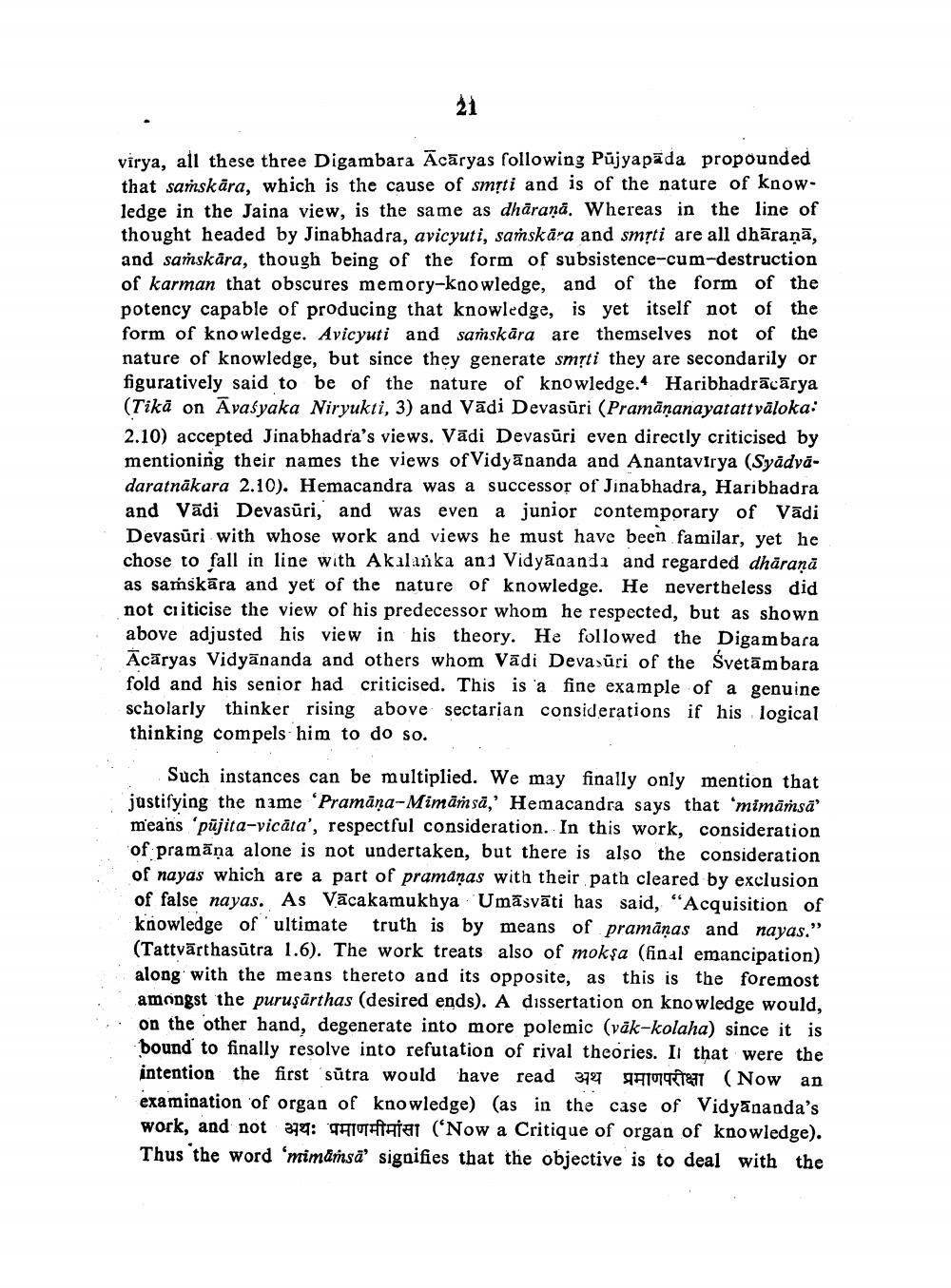________________
21
virya, all these three Digambara Ācāryas following Pūjyapāda propounded that samskära, which is the cause of smsti and is of the nature of knowledge in the Jaina view, is the same as dhäranä. Whereas in the line of thought headed by Jinabhadra, avicyuti, samskāra and smsti are all dhāraṇā, and samskära, though being of the form of subsistence-cum-destruction of karman that obscures memory-knowledge, and of the form of the potency capable of producing that knowledge, is yet itself not of the form of knowledge. Avicyuti and saņskāra are themselves not of the nature of knowledge, but since they generate smộti they are secondarily or figuratively said to be of the nature of knowledge.4 Haribhadrācārya (Tikā on Āvasyaka Niryukti, 3) and Vādi Devasūri (Pramānanayatattvāloka: 2.10) accepted Jinabhadra's views. Vādi Devasūri even directly criticised by mentioning their names the views of Vidyānanda and Anantavirya (Syadvadaratnākara 2.10). Hemacandra was a successor of Jinabhadra, Haribhadra and Vādi Devasūri, and was even a junior contemporary of Vādi Devasūri with whose work and views he must have been familar, yet he chose to fall in line with Akalanka and Vidyānandi and regarded dhāranā as saṁskāra and yet of the nature of knowledge. He nevertheless did not criticise the view of his predecessor whom he respected, but as shown above adjusted his view in his theory. He followed the Digambara Ācāryas Vidyānanda and others whom Vādi Deva sūri of the Svetām bara fold and his senior had criticised. This is a fine example of a genuine scholarly thinker rising above sectarian considerations if his logical thinking compels him to do so.
Such instances can be multiplied. We may finally only mention that justifying the name 'Pramāņa-Mimāṁsā,' Hemacandra says that 'mimāṁsā' means 'püjita-vicäta', respectful consideration. In this work, consideration of pramāṇa alone is not undertaken, but there is also the consideration of nayas which are a part of pramåņas with their path cleared by exclusion of false nayas. As Vācakamukhya Umāsvāti has said, “Acquisition of knowledge of ultimate truth is by means of pramāṇas and nayas." (Tattvärthasūtra 1.6). The work treats also of mokşa (final emancipation) along with the means thereto and its opposite, as this is the foremost amongst the puruşārthas (desired ends). A dissertation on knowledge would, on the other hand, degenerate into more polemic (väk-kolaha) since it is bound to finally resolve into refutation of rival theories. It that were the intention the first sūtra would have read 379 981977 (Now an examination of organ of knowledge) (as in the case of Vidyānanda's work, and not 379: Ta a t ('Now a Critique of organ of knowledge). Thus the word 'mimämsä' signifies that the objective is to deal with the




